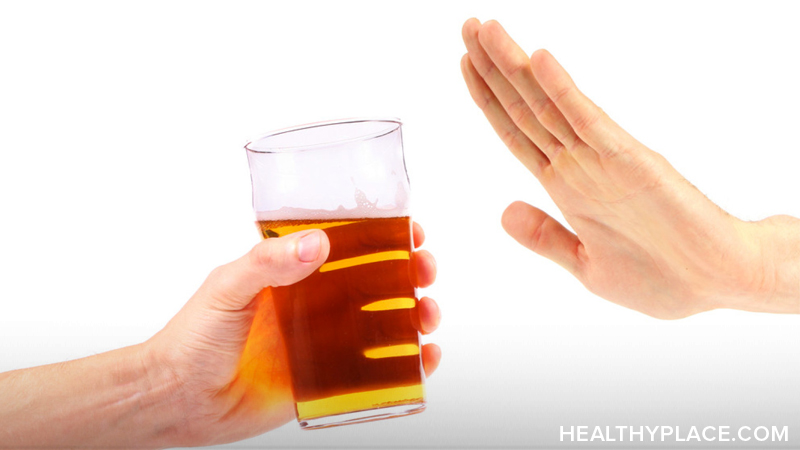Co-Dependence: Spirituality As Relationship
"This dance of Codependence is a dance of dysfunctional relationships - of relationships that do not work to meet our needs. That does not mean just romantic relationships, or family relationships, or even human relationships in general.
The fact that dysfunction exists in our romantic, family, and human relationships is a symptom of the dysfunction that exists in our relationship with life - with being human. It is a symptom of the dysfunction which exists in our relationships with ourselves as human beings.
The more we enlarge our perspective, the closer we get to the cause instead of just dealing with the symptoms. For example, the more we look at the dysfunction in our relationship with ourselves as human beings the more we can understand the dysfunction in our romantic relationships.
As was stated earlier, our perspective of life dictates our relationship with life. This is true for all types of relationships. Our perspective of God dictates our relationship with God. Our perspective of what a man or a woman is, dictates our relationship with ourselves as men or women, and with other men and women. Our perspective of our emotions dictates our relationship with our own emotional process.
Changing our perspectives is absolutely vital to the growth process."
Spirituality is a word that describes relationship. How one defines the word controls one's relationship with the word. If one defines spirituality as one's relationship to god - then the relationship is dependent on how one defines god. If one defines spirituality as one's relationship to the spirit - then the relationship is dependent on how one defines spirit. The thing that is so important in regard to healing and recovery, is to realize that you have the right to chose definitions that work for you. No one has to accept any one else's definition - no matter what any religion contends.
continue story below
This was what was so revolutionary about the twelve step process introduced by Alcoholics Anonymous. It is based on the premise that each individual can develop a personal relationship with a Higher Power of their own understanding. I find it really amusing that so many 12 step meetings meet in churches whose religion would brand this belief heresy. As I state in my book, the twelve step process started a revolution in spiritual consciousness.
In order to be open to looking at the concept of spirituality from a new perspective, it is vital to be willing to look at our definitions, at the beliefs that dictate our relationship with the word/concept. On an intellectual level, it is very important to be willing to look at our mental attitudes, beliefs, and definitions - both conscious and subconscious - in order to get clear with ourselves about what the word/concept means to us individually and personally. Until we do that, we are reacting to what the word meant to them. Until we become willing to look at how our intellectual paradigm is dictating our relationship, we are giving power to the very institutions and people who wounded us.
As with any other issue in recovery there is an intellectual/mental level of healing and transformation that is important, and there is also an emotional level - which is separate from, but intimately interrelated with, the intellectual.
One of the greatest blocks to communication is that some words are emotionally charged. They are words that trigger an automatic emotional reaction within us. To use a trigger word in an argument - a word such as controlling or manipulative - can turn a discussion into a battle instantly. When someone flings a trigger word at us, or we at them, it is like we have just shot an arrow into them. It usually causes them to go on the defensive and start flinging some arrows back at us - or perhaps go into some other defensive mode, such as crying or walking out.
Using trigger words blocks communication. And we usually use them consciously (although we certainly may not be honest enough to admit it at the time - or even later, depending on the level of our recovery.) We use them in reaction - because we have been hurt or are scared, because we are trying manipulate and control the other person. (Using a word like manipulate or control to describe someone else's behavior to them, is almost always an attempt to control and manipulate the person we are accusing of that behavior.)
For the purposes of this discussion, what is important is to realize that trigger words fall into realm of cause and effect. We are born with a certain personality - we are not born with certain words programmed as emotional triggers. Emotional triggers fall entirely in the province of experience. We have an emotional charge attached to certain words because of our life experience. In other words, we have a relationship to that word that is a result of emotional experiences in our life.
Spirituality is a trigger word for some people. God is a trigger word for many people. Religion is a major trigger word. That these are trigger words is not bad or wrong or abnormal. What is important is to realize that these are emotional trigger words for a reason - there is a cause that has produced this effect, and it is emotional. We do not have emotional trigger words because of intellectual disagreement. Trigger words carry emotional charge because of emotional wounds. As long as we are not willing to look for the cause behind our emotional relationship with a word we are still giving power to our past and whatever circumstance caused our emotional wound. Giving power to past emotional wounds causes us to not see reality clearly today - and that is what is dysfunctional, allowing the past to interfere with the present in such a way that we are not open to all possible choices.
So, we have emotional relationships with certain words. (This is also true of many other things: gestures - someone pointing a finger at you, tone of voice, sounds, smells, etc.) As I mentioned, there are also words that describe relationship. When a word that describes relationship is also a trigger word, it dictates our relationship with whatever concept, idea, dynamic, etc., that word describes.
When we have a powerful emotional charge associated with a word, it affects our relationship with any other words which we see as directly connected to that word - concept, idea, dynamic, etc.
Having a powerful and negative emotional charge associated with the concept/word god, caused me to also have negative reactions to anything I saw as being associated with that concept I was emotionally abused with in childhood. Because of that shaming, abusive concept of a god the father who might send me to burn in hell forever - I did not want anything to do with: religion, Christianity, Jesus, etc. I also saw the evil actions that were perpetrated in the name of that god/religion in the course of history - which gave me even more reason to reject the concept out of hand and completely.
By rejecting the concept, and allowing it to pollute my relationship with other words/concepts, I was limiting myself and my personal universe. I talk about this emotional trigger in the article Jesus and Mary Magdalene-Jesus, Sexuality, and the Bible.
"I was severely Spiritually abused growing up in a very shame-based religion that taught me that I was born sinful and that there was a God who loved me but might send me to burn in hell forever for being human (i.e. getting angry, making mistakes, being sexual. etc.) I still have some very tender wounds about the effect those teachings have had on my life. As I write this my eyes filled with tears of sadness about that little boy being taught what I believe are such abusive and spirit destroying concepts. I still have a great deal of anger that this abuse was perpetrated on me, and that so many other children were, and are, being abused by these types of teachings - which are in my belief the very opposite of the Truth of a Loving God-Force.
I have done a lot of healing around these wounds and they don't have nearly the power they used to have only a few years ago. In fact, the only thing which I might even consider changing in my book "The Dance of Wounded Souls" is the tone which I use on one page in talking about the abuse which has been perpetrated in the name of Jesus by people who were acting the very reverse of what I believe Jesus taught. I absolutely believe what I say in my book but now, with a few more years of healing of those wounds, I might say it a little less stridently, in a little softer manner
Because I still have buttons that can be pushed in relationship to my wounding, I try to be careful to not react when I sense in someone else the kind of rigid shame-based belief system that was so damaging to me."
Even up to a year ago, I would cringe when I got an e-mail from someone who described what I was writing as Christian - because I had such a negative emotional charge associated with Christianity and Christian religion as I had experienced it.
As long as I was reacting to twisted and perverted interpretations of what Christianity said Jesus taught, I was incapable of looking for any Truth in the messages of the man Jesus. Through being willing to look at my intellectual attitudes (and transform them when I found that worked for me) and do the emotional healing (which involved a great deal of grief and rage work, especially rage work) I was able to change my relationship with the concept of God enough to take away the negative power that I had formally given to the word. Then I could stop having wearing blinders caused by old reactions.
I am using this illustration as simply an example here - I am not saying that anyone reading this needs to come to the same understanding of God, or religion, or Jesus, that I have evolved. (Obviously, from my use above of the word "perverted," I still do have some charge in relationship to those old wounds.)
My point is, that because of my emotional wounds I was not able or willing to look for Truth in any arena that was related to the shame based religion which so wounded me. In my quest for a relationship with myself, with life, and with the Universe, that worked better than the one I had learned growing up, I needed to be willing to look for Truth anywhere and everywhere. I could not see the larger picture, make a paradigm shift, until I became open to looking at different perspectives from a different perspective.
The first step in that process was to divorce the word spirituality from the concept of religion. I made a choice to start seeing spirituality as being much larger than religion. In other words, spirituality is not religion - although some religions can contain some spirituality.
I started looking at spirituality as a word that described my relationship to life. To life, to the Universe, to myself and other human beings, to a Higher Power - if there were such a thing. It was very beneficial to me, to take the negative emotional charge out of my relationship with the word spirituality. It was a very powerful transformational experience for me to open up and enlarge my intellectual definitions of spirituality - and any words or concepts that I felt were related to spirituality.
continue story below
It was a major step, in the process of moving toward freedom from the past, for me to stop letting the religion I grew up in have power in determining my relationship with life today. In the story of my healing journey that I am writing in my Joy2MeU Journal, I talk about how my recovery from codependence began when I realized that I was still reacting to life emotionally out of the subconscious beliefs instilled in my childhood (that life was about sin and punishment, and I was a sinner who deserved to be punished) even though on a conscious level I had thrown out those beliefs 20 years earlier.
My conscious recovery from codependence started when I became willing to look at the cause and effect relationship between my childhood and my adult life. More specifically, it involved a paradigm shift which allowed me to stop empowering the shame based religious beliefs I was raised with and start empowering myself to own that I had choices. By starting to become aware of my choices I was able to change my relationship with life and vastly improve the quality of my life experience. It was also a major step on the path to learning how to Love myself.
I have chosen to develop a relationship with the concept of spirituality that works very well for me. It works to make my life easier and more enjoyable today. It works to help me: relax and let go of some of my fears; let go of shame and self judgment; to be in the moment today and have the freedom to be happy and find Joy in being alive - no matter what the outside conditions in my life may be today.
My relationship with the concept of spirituality today is one that both brings me comfort and empowers me. My philosophy in regard to spirituality is summed up pretty well in a quote from one of my next books which I use on the Spiritual Pages index page of my site.
"Spirituality is all about relationships. One's relationship to self, to others, to the environment, to life in general. A Spiritual belief system is simply a container for holding all our other relationships. Why not have one that is large enough to hold it all."
By doing the intellectual reprogramming and emotional healing, I have enlarged my definition, shifted my paradigm, into one that is large enough to work for me in helping me to live a happier life today.
Atheist and agnostic are both words that have power in defining self in relationship to life. You may feel that defining yourself as an atheist or agnostic is working very well for you in your life. If it is, right on. I honor your choice and your right to make that choice. I honor the rebel in you who would not allow doctrine to impose it's dictatorship on you.
I would just ask you to consider if it is possible that your self definition is limiting your choices in the same way that one who blindly accepts the Christian concept of god is limiting themselves. Any time we empower a rigid belief - either because it is the doctrine of some religion, or in reaction to emotional wounds - we are limiting ourselves in our perspectives of life, of ourselves, of everything and everybody. We are enslaving ourselves to a dictatorship when we are in reaction to old wounds and old tapes. We are limiting our freedom.
The question here is not right or wrong - it is not black and white. The question is: "How is it working for you?" "Is the way you are living your life working to meet your needs?" "Are the ways in which you choose to define yourself working to make life a happier, more enjoyable experience for you?
I am not here to tell you what you should believe. I am merely sharing what I have learned, the insights that I have gained in my journey. As I say, in several places in my book:
"I offer this as I offer everything else that I am sharing here - as an alternate perspective for you to consider."
So, now I have a large web page written and have touched on only one of the perspectives of spirituality that I had planned on including. One more time a simple article has turned into a series. The next article will be a scientific view of spirituality entitled Quantum Spirituality.
To wrap up this article, I want to refer back to the quote from my book that talks about there being some Truth in every religion, philosophy, etc. This is also Truth in relationship to atheism and agnosticism. I would like to end this by sharing some quotes from my writings in which I make statements that are at least somewhat in alignment with these philosophies.
For atheists who deny the existence of a God, I would offer a quote from my Trilogy that supports the belief that there is no God - as it is defined in the traditional Western concept of a Supreme Being.
(In both the reference that I use here to what defines an atheist, and the one I will use shortly for agnostic, I want to acknowledge that these are simplistic, one dimensional depictions of such beliefs that do not speak to the totality of anyone's philosophy. I do not mean to demean or diminish anyone's beliefs by this - I am simply trying to communicate a point.)
"Once upon a time, there was a dream of creation. This Creation Dream, like all dreams of creation, was projected within the heart of ALL THAT IS.
This Creation Dream is the result of a brilliant concept of the imagination of the ONE consciousness of ALL THAT IS. ALL THAT IS is the sea of energy that is everything which exists in Reality. This great sea of energy vibrates in ONENESS at the frequency of Absolute Harmony, LOVE, and has been called by a multitude of names. Many of these names will be referred to in the course of this story but, for the sake of simplicity and clarity, the names most often used will be God or The Goddess, with occasional use of I AM, The Holy Mother Source Energy, or The Great Spirit. All of these titles refer to the great sea of energy that is ALL THAT IS.
And this sea of energy, The Goddess, is one very smart cookie.
(Which would seem to be the prime requirement for the job of being the ALL-Knowing, ALL-Powerful Source although, God knows, many humans continue to limit their concept of a Higher Power to something small, petty, and humanoid. God, by the way, is not a "Supreme Being" because The Goddess is not a "being". God is the energy of ALL THAT IS vibrating at LOVE and as such will not be referred to by the personal pronoun "she", which in any case would be much more accurate than "he". More will be revealed.)"
from The Dance of the Wounded Souls Trilogy Book 1: History of the Universe (Part I)
I agree with agnostics who maintain that any God/Source/First Cause is unknowable - beyond human understanding or comprehension. Below is a quote from my book, and one more from my Trilogy. The one from my Trilogy states very nicely the point that I have been trying to make in this article: that enlarging our intellectual paradigm is not something to be done to try figure out what is right or to know absolute truth - it is something we can do to change our perspective of life so that we can change our relationship with our self and with life. Being open to growth is an act of Love that can help us heal our relationship with our self - and that to me is what spirituality is all about.
"There is nothing shameful or bad about being human!
We are NOT being punished for something some dude did in a Garden thousands of years ago!!!
We are NOT being punished because some angels tried a coup dÃetat on some bearded male god!
We are NOT being punished, as some of the new age psychics and channeled entities claim, as the result of our ancestors becoming trapped in the lower vibrational frequencies because they liked sex too much, or procreated with animals.
THAT IS ALL BULLSHIT!!!
Those are twisted, distorted, grotesquely warped misinterpretations of what were originally symbolic, metaphoric, allegorical attempts to explain the unexplainable. They no longer contain more than an echo of a grain of Truth in them. They have been distorted so grotesquely because of the shame which humans assumed came with the pain of the original wound."
"None of the details of any of these explanations of the unexplainable should be taken too seriously or literally - it is impossible to describe the indescribable. They are merely tools to facilitate a paradigm shift in consciousness - to help us open up to larger definitions of the Creation than those we were taught in childhood. The goal here is to empower a more expansive context within which to view the dance of life - one which allows for a perspective of human existence that does not include shame and sin."
next: Spiritual Integration and The Co-dependent Recovery Process
APA Reference
Staff, H.
(2008, December 12). Co-Dependence: Spirituality As Relationship, HealthyPlace. Retrieved
on 2025, November 2 from https://www.healthyplace.com/relationships/joy2meu/spirituality-as-relationship

 A significant proportion of female athletes develop a syndrome known as the female athlete triad, which involves loss of menses, disordered eating, and osteoporosis. Loss of menses is normally attributed to a drop in estrogen levels due to strenuous exercise and resulting low percentages of body fat. Low estrogen levels play a role in the drop in bone density in such individuals. Caloric restriction can also contribute to the syndrome.
A significant proportion of female athletes develop a syndrome known as the female athlete triad, which involves loss of menses, disordered eating, and osteoporosis. Loss of menses is normally attributed to a drop in estrogen levels due to strenuous exercise and resulting low percentages of body fat. Low estrogen levels play a role in the drop in bone density in such individuals. Caloric restriction can also contribute to the syndrome.
 Suicide was the 11th leading cause of death in the United States.
Suicide was the 11th leading cause of death in the United States. Maybe your
Maybe your 
